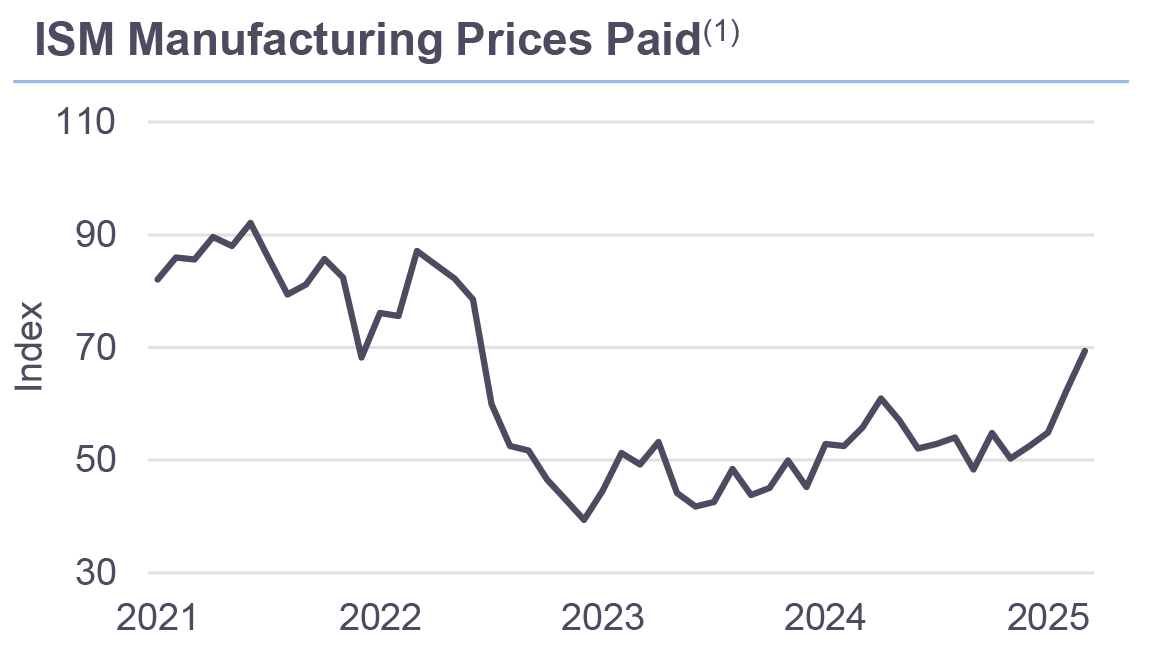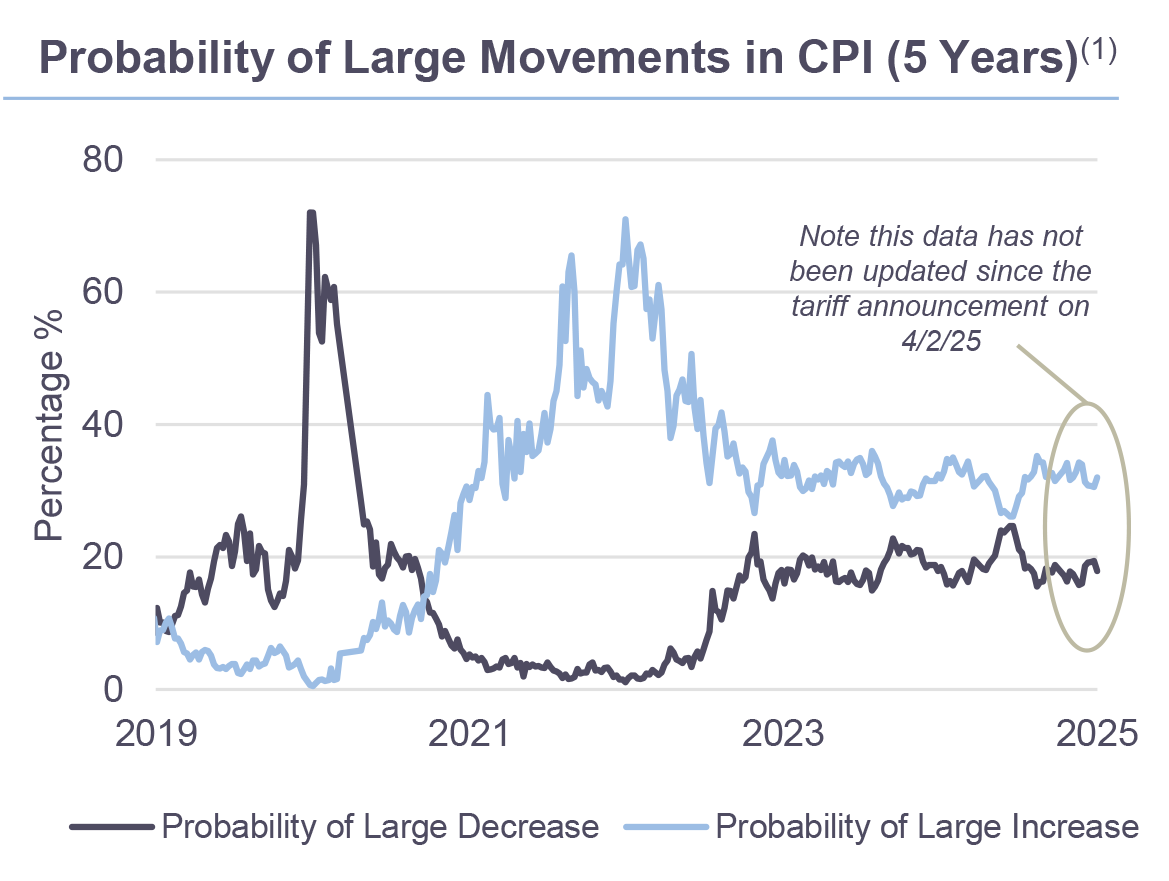Tariffs Shock and Awe: Regime Change
With the sweeping “Liberation Day” tariffs now announced, the total impact on tariffs is now 3 times what was initially projected. This is a massive price shock on $3.3 trillion of imports. The total of these tariffs is expected to amount to over 20% of the $3.3 trillion ($650+ billion or more than 2% of GDP). The actual tariffs paid will depend on the response of import volumes to the tariff shocks, but the scale of the tariffs will mean a marked reduction in import volumes. We expect the announcement to invite retaliation, ultimately hurting US exports.
The Conversation
Rising input costs have forced manufacturers to pass on higher prices. The ISM Manufacturing Prices Paid Index, for example, leaped from 62.4 in February to 69.4 in March—the highest level recorded since June 2022. Meanwhile, market-based probability tools from the Minneapolis Fed still indicate a 40% chance that the Consumer Price Index (CPI) will exceed 3% over the next five years, which is double the probability that inflation will dip below 1% in that same period. This disparity underscores persistent inflation risks as firms face mounting tariff pressures.
At the same time, corporate profitability remains robust. Pre-tax economic profits of nonfinancial domestic corporations edged up to 21.5% in Q4 and averaged 21.2% over the year—the highest levels since 1951. While these strong margins have helped sustain business confidence so far, the continued escalation of tariff-induced cost increases may eventually erode profitability if companies are unable to pass all the costs onto consumers.


The Rithm Take
Tariffs set to be implemented from “Liberation Day” are bigger, broader and deeper than expected. The reciprocal tariffs announced are set to hit over 180 countries and territories. In addition, the magnitude of the tariffs were much higher than expected. Consensus estimates stand to raise inflation by 1-1.5% and weaken growth by the same amount. The Fed’s reaction function will now have to battle this outlook of higher inflation and lower growth. The interest rate futures market is currently pricing in ~90bps points by the December 2025 meeting, which indicates the market is leaning towards a focus on growth for the Fed.